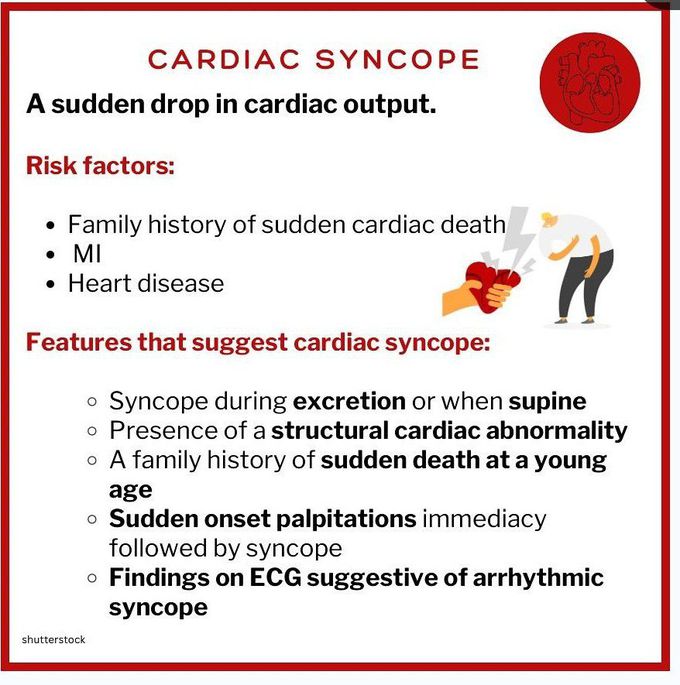


Syncope V
Syncope is a brief loss of consciousness, also known as fainting or passing out. It occurs when there's a sudden change in blood flow to the brain, which prevents the brain from getting enough oxygen. Syncope can be harmless, but it can also be a symptom of an underlying medical condition, such as heart disease or other heart problems. In rare cases, it can be the first warning sign of sudden cardiac death. Symptoms of syncope include: Dizziness, Lightheadedness, Nausea, Visual "gray out, Trouble hearing, Palpitations, Weakness, and Sweating. If someone faints, you should move them to a lying position to allow blood to flow to their brain. If they don't regain consciousness quickly, you should start CPR. Treatments for syncope include medications, lifestyle changes, and addressing any underlying heart issues. A doctor may perform a physical exam, take a history, and order diagnostic tests to determine the cause.

